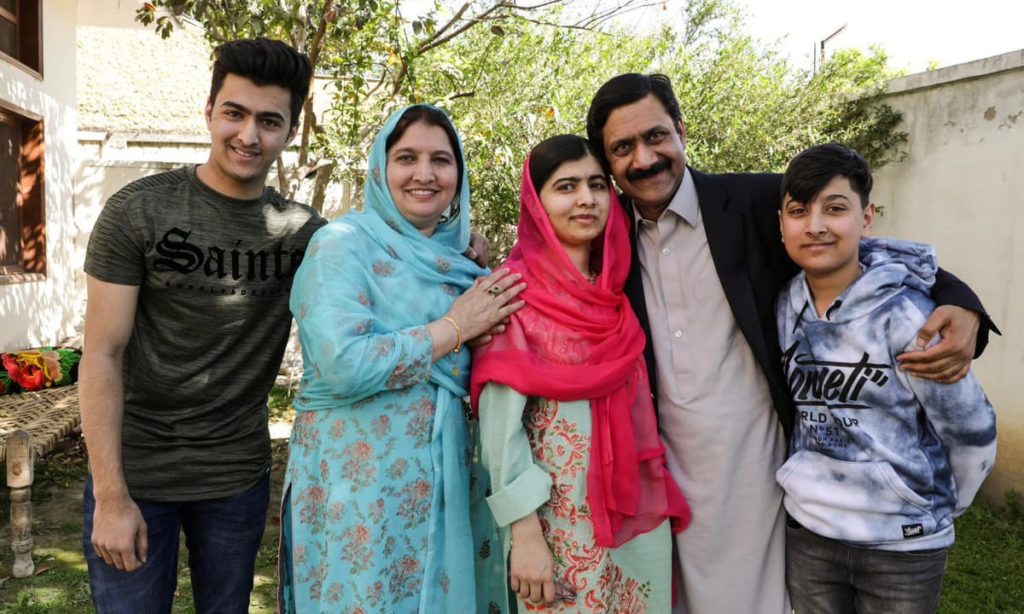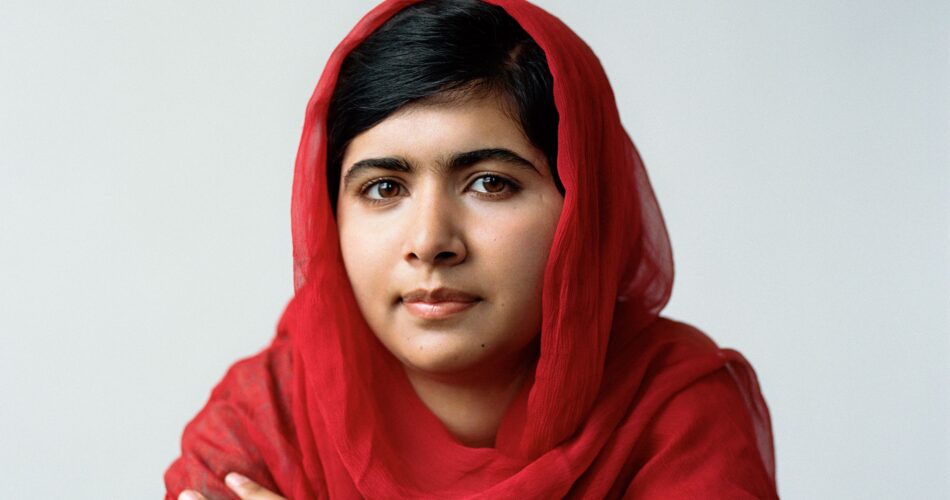Malala Yousafzai is a symbol of courage, hope, and dedication to girls’ education. Born on July 12, 1997, in Mingora, Pakistan, Malala‚Äôs journey to becoming the youngest Nobel Peace Prize laureate is a powerful story of resilience. Her advocacy for girls’ education, particularly in regions where girls lack basic rights, has made her an international symbol of strength and gender equality.
Early Life and the Spark for Change
Malala grew up in the Swat Valley of Pakistan, a region once known for its cultural heritage. Her father, Ziauddin Yousafzai, strongly believed in education and ran a girls’ school. Malala drew inspiration from her father’s passion for learning, which laid the foundation for her own educational journey.

Source- Dawn
When Malala was just 11, the Taliban took control of the Swat Valley. They banned girls from attending school. Malala, deeply passionate about education, could not accept being denied the opportunity to learn. She started writing a blog under a pseudonym for BBC Urdu, sharing her life under the Taliban’s rule and the struggles girls faced in obtaining an education.
The Attack and the Global Response
On October 9, 2012, Malala’s fight for education took a violent turn. A Taliban gunman shot her in the head while she was riding a bus home from school. The attack sparked outrage and led to widespread support for Malala. Despite her severe injuries, Malala survived after several surgeries, becoming a symbol of strength.
The global response to the shooting was unprecedented, with millions of people calling for the protection of girls’ education. Malala‚Äôs bravery turned her into an international icon and inspired young people worldwide to stand up for their rights.
The Malala Fund and Advocacy for Girls’ Education
After her recovery, Malala’s mission became more focused. In 2013, she co-authored I Am Malala: The Girl Who Stood Up for Education and Was Shot by the Taliban. The book quickly became a bestseller and solidified her as a leading voice for education rights.
Malala also founded the Malala Fund, a nonprofit organization dedicated to girls’ education worldwide. The fund aims to remove barriers preventing girls from attending school, such as poverty, discrimination, and conflict. The Malala Fund works with local organizations and governments to ensure that girls, especially those in conflict zones, have access to free, quality education.
Malala advocates for more than just education. She believes education should empower girls to become leaders and change-makers. Through her work, she amplifies the voices of marginalized girls, encouraging them to take active roles in their communities.
Malala’s Nobel Peace Prize
In 2014, Malala became the youngest-ever recipient of the Nobel Peace Prize at the age of 17. She shared the honor with Kailash Satyarthi, an Indian child rights activist. The Nobel Committee recognized Malala for her fight against the suppression of children and for advocating the right to education for all children.
Her Nobel Peace Prize win not only solidified her status as an international icon but also drew more attention to the issue of girls’ education, a critical global challenge.
Challenges Facing Girls’ Education Today
Despite progress, many obstacles remain in the fight for girls’ education. Millions of girls still face cultural, social, and political barriers to attending school. Conflict, poverty, and gender discrimination continue to hinder their progress. Malala’s advocacy shines a spotlight on these issues and continues to push for change.
Through her speeches, writings, and global campaigns, Malala urges governments and organizations to invest in education programs that empower young girls, especially in low-income countries.
Conclusion: Malala Yousafzai’s Legacy
Malala Yousafzai‚Äôs journey is one of hope and determination. Her fight for girls’ education has touched millions, and her commitment to equality inspires future generations. Malala‚Äôs legacy goes beyond her Nobel Peace Prize. It is about the thousands of girls whose lives have been transformed by the opportunities she has helped create.
As Malala continues her advocacy, it is crucial to remember that the fight for girls’ education is not over. There are still many challenges ahead, but with leaders like Malala, there is hope for a brighter future for girls worldwide.
